Publications
Articles, publications, books, tools and multimedia features from the U.S. Institute of Peace provide the latest news, analysis, research findings, practitioner guides and reports, all related to the conflict zones and issues that are at the center of the Institute’s work to prevent and reduce violent conflict.
Question And Answer
Amid a Changing Global Order, NATO Looks East
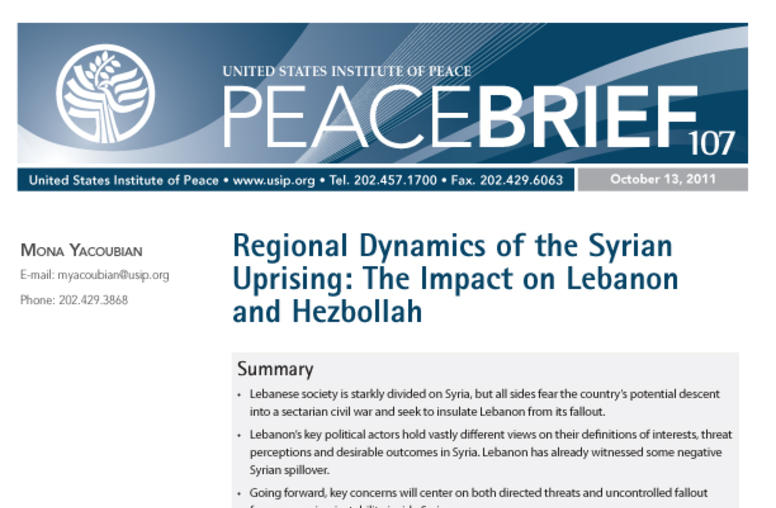
Regional Dynamics of the Syrian Uprising: The Impact on Lebanon and Hezbollah
This Peace Brief is part of a series examining the regional dimensions of Syria’s popular uprising. The Institute invited leading experts from the U.S. and across the Middle East to identify key vectors of influence Syria’s neighbors are bringing to bear on the conflict; to forecast how the on-going conflict in Syria will affect the delicate and volatile regional balance of power; and to examine how the Syrian opposition and the Syria regime are factoring in regional and cross-border dynamics...
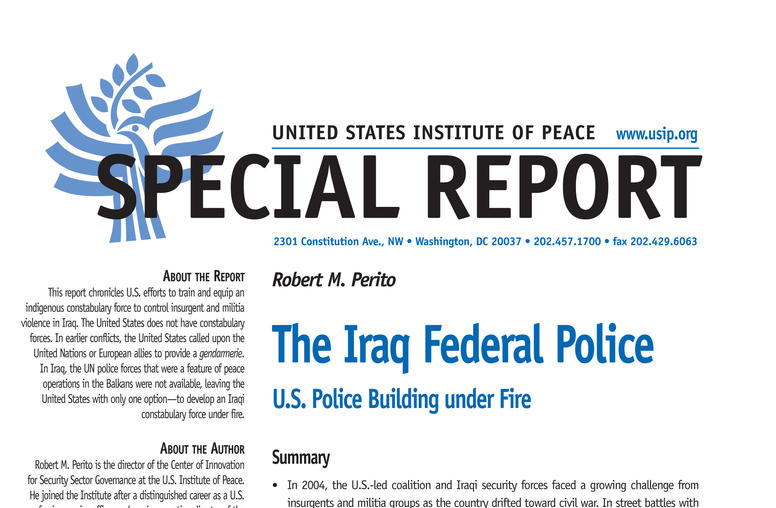
The Iraq Federal Police
In Iraq, the U.S. learned that setting up an effective local constabulary during conflict requires broad agreement on the police force’s roles and mission, a clear division of police and military responsibilities, and role models who can train and mentor candidate officers on their moral obligation to protect society.
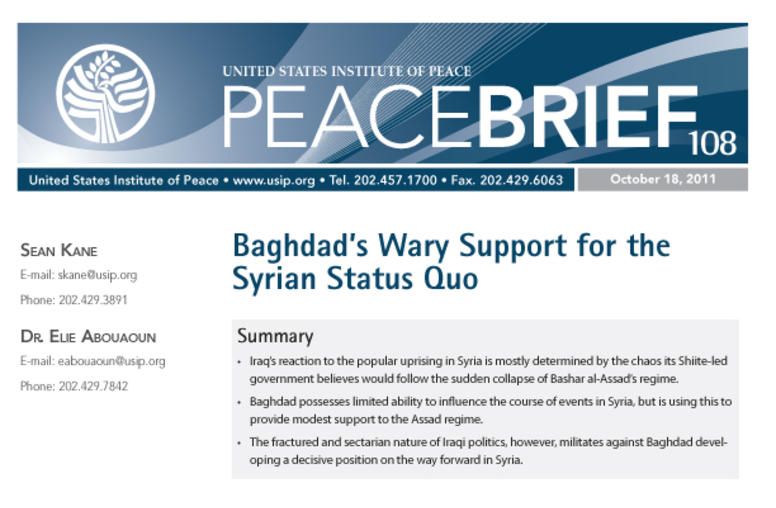
Baghdad’s Wary Support for the Syrian Status Quo
Iraq’s reaction to the popular uprising in Syria is mostly determined by the chaos its Shiite-led government believes would follow the sudden collapse of Bashar al-Assad’s regime. This Peace Brief outlines how Baghdad possesses limited ability to influence the course of events in Syria, but uses this to provide modest support to the Assad regime. This Peace Brief is part of a series examining the regional dimensions of Syria’s popular uprising.
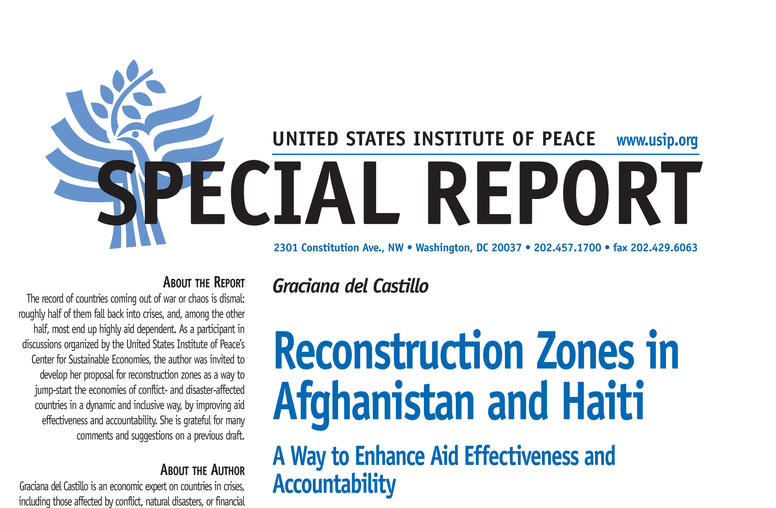
Reconstruction Zones in Afghanistan and Haiti
The record of countries coming out of war or chaos is dismal: roughly half of them fall back into crisis. Among the other half, most end up highly aid dependent. The author of this Special Report was invited to develop her proposal for reconstruction zones as a way to jump-start the economies of conflict- and disaster-affected countries in a dynamic and inclusive way, by improving aid effectiveness and accountability.
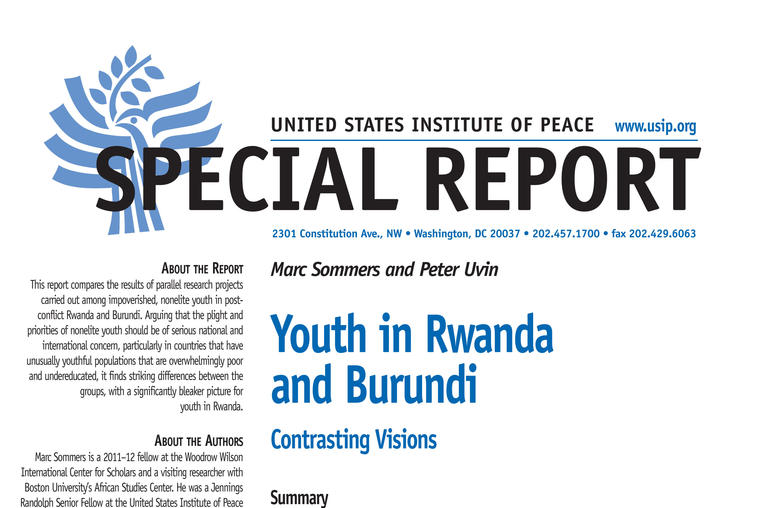
Youth in Rwanda and Burundi
This report compares the results of parallel research projects carried out among impoverished, nonelite youth in postconflict Rwanda and Burundi. Arguing that the plight and priorities of nonelite youth should be of serious national and international concern, particularly in countries that have unusually youthful populations that are overwhelmingly poor and undereducated, it finds striking differences between the groups, with a significantly bleaker picture for youth in Rwanda.
"The Assad Regime Will Collapse"
Four members of the newly formed Syrian National Council (SNC) appeared at USIP in Washington for “Voices from the Front Lines: an Update on the Syrian Opposition.” The members are determined to create a representative, effective group that is a viable alternative to the regime of Bashar al-Assad in Syria.
Mr. Lee Goes to Washington
John Park, a senior program officer who directs USIP’s Korea Working Group, analyzes prospects for South Korean President Lee Myung-bak’s state visit to the United States October 13.
'Landmark' Hamas and Israel Prisoner Swap
USIP's Lucy Kurtzer-Ellenbogen discusses the political aspects and timing of the Palestinian-Israeli prisoner swap brokered by the Egyptians.
Getting Past the Palestinian Bid for U.N. Membership
USIP convened a group of distinguished experts to discuss the way ahead after the Palestinian Authority moved forward with its application for U.N. membership. Progress has been made in recent years in Palestinian state-building, but how or if the two sides approach the negotiating table now remains far from clear.
Syria's Opposition Takes Form
There is little doubt the creation of a unified front among the various dissident groups in Syria is a positive development for their cause. But it remains unclear if it reflects a true "coalescing" of all the different rebel voices, or if the group can grow into an effective political force capable of being seen as a viable alternative to the Assad regime.